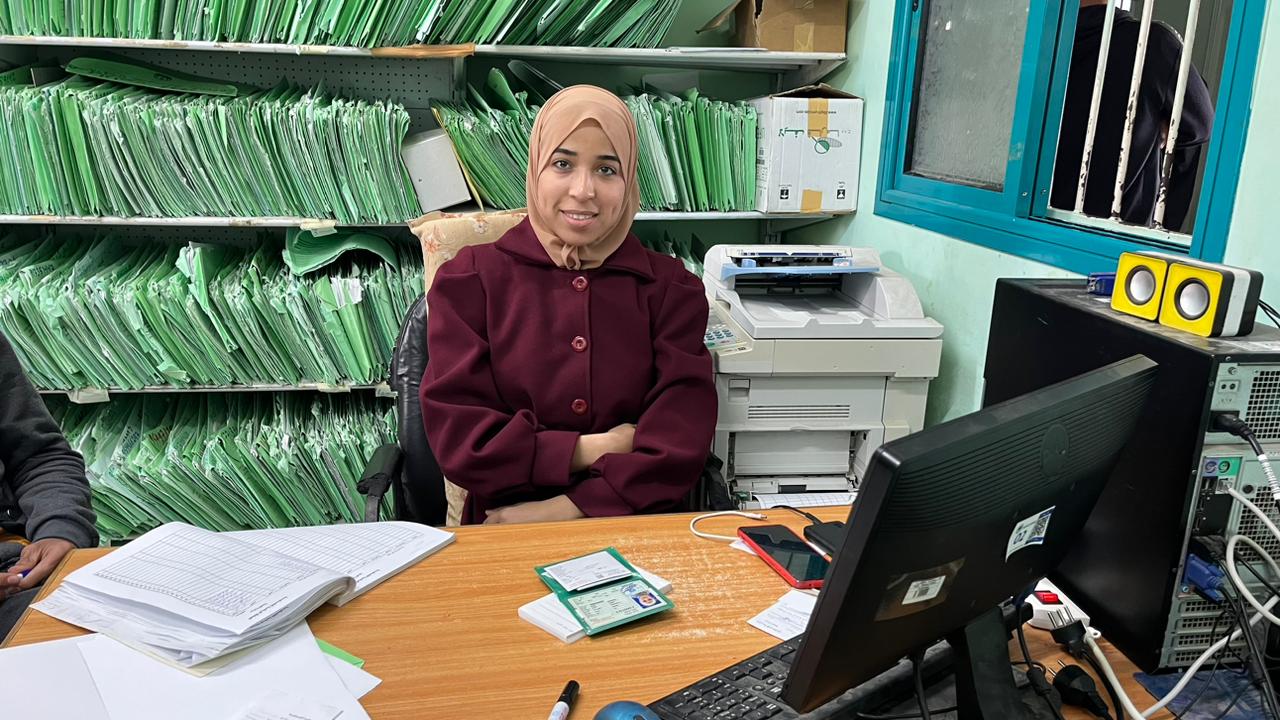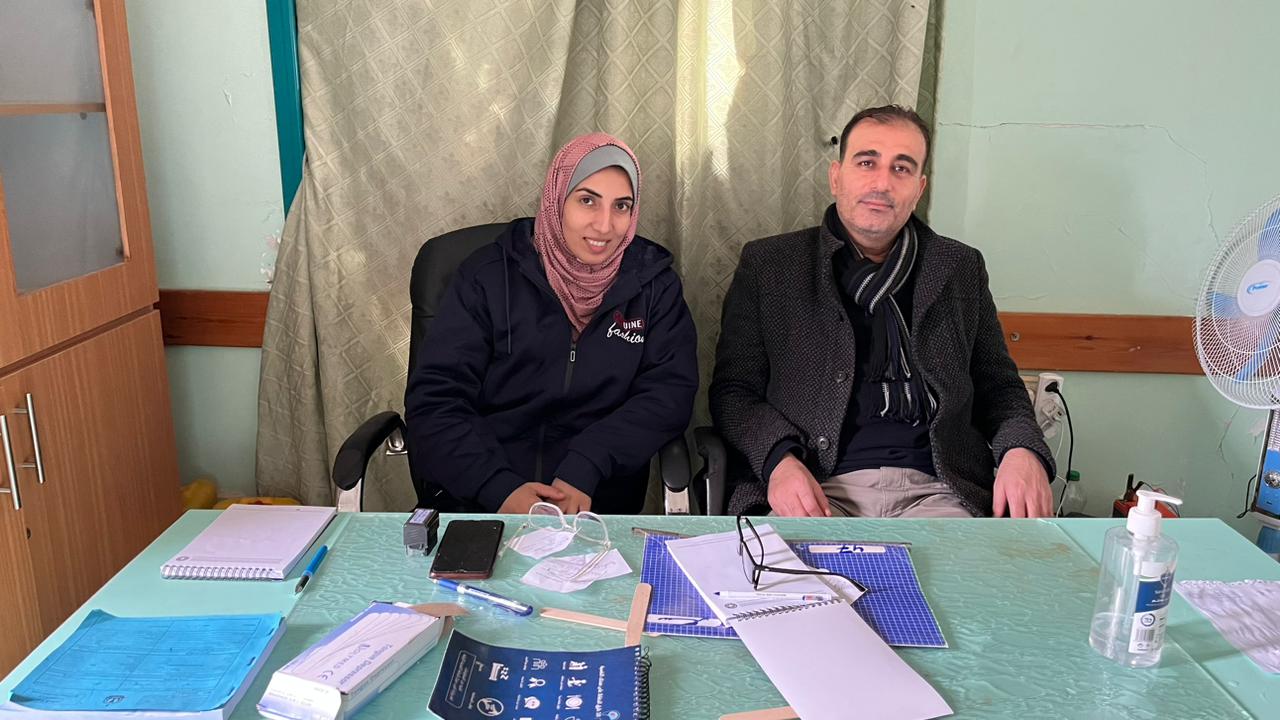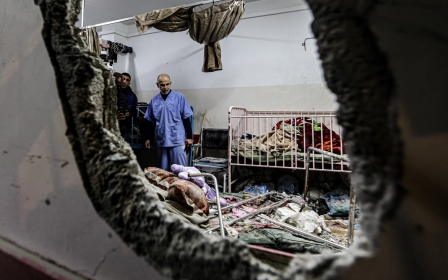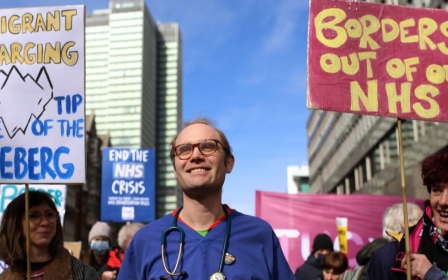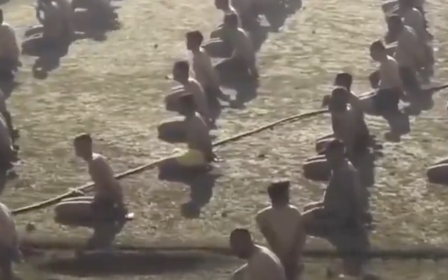War on Gaza: Traumatised Palestinian medical workers provide relief to Israel’s victims
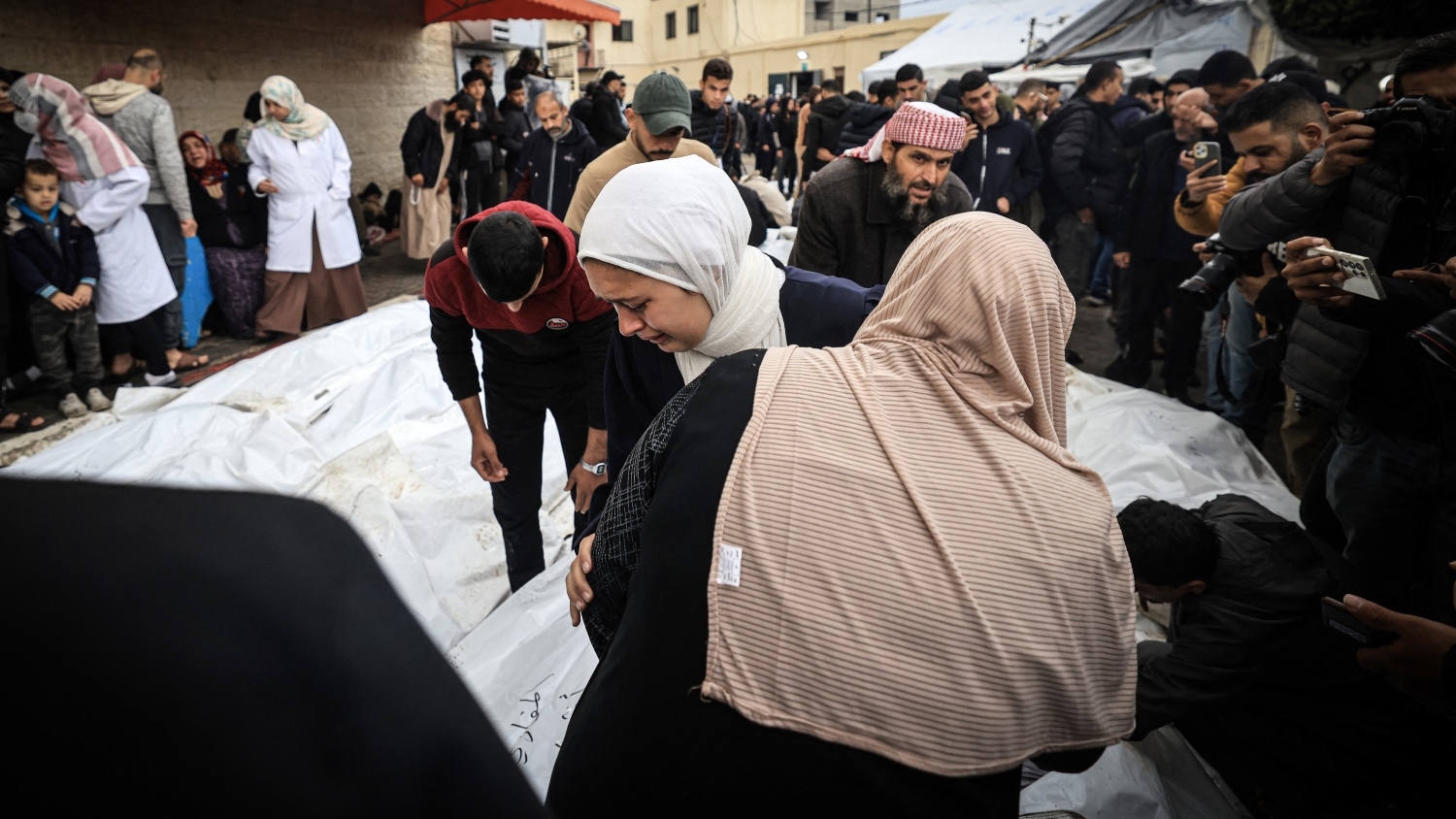
Nesma Abu Musameh never imagined she would be on the front lines of Gaza’s healthcare crisis, helping to process the endless influx of the sick and wounded at a government clinic in the Maghazi refugee camp.
The 21-year-old was a graduate in communications engineering and was looking for a job before conflict broke out on 7 October.
Since then, the healthcare system in the besieged Palestinian territory has broken down under the strain of Israeli military attacks on hospitals, the blockade of fuel and medicine needed to keep medical facilities running and the sheer volume of wounded, as Israel continues its bombing campaign in Gaza.
“Feeling a sense of social responsibility, I approached my father, who works as an administrative clerk in the clinic, and expressed my willingness to assist him in his duties,” Musameh told Middle East Eye, explaining how she became a volunteer administrative clerk at the clinic.
"I work from eight in the morning until two in the afternoon in the clinic under extreme conditions. The patient load is exceptionally high, with around 800 individuals seeking care daily.”
New MEE newsletter: Jerusalem Dispatch
Sign up to get the latest insights and analysis on Israel-Palestine, alongside Turkey Unpacked and other MEE newsletters
Smaller health facilities like the clinic in Maghazi have taken on a greater importance since the conflict began, as Israel has focused its military campaign on hospitals, claiming that Hamas and other Palestinian factions have command facilities underneath them.
Al-Shifa Hospital in Gaza City was an early target for Israeli military planners, who said there was a Hamas fortification beneath it.
Weeks after its bloody capture, during which bodies of those killed by Israel were buried in mass graves under the hospital’s grounds, no evidence of a major Hamas facility has been found.
However, that does not mean smaller clinics have been left alone by Israel. Musameh’s clinic suffers from a lack of electrical power after an Israeli strike on a nearby building damaged solar panels on its roof.
“The situation has forced me to carry out my duties using pen and paper,” Musameh said, adding: “Compounding these challenges, all the windows in the clinic were shattered, instigating panic and fear among the people seeking refuge."
‘In search of safety’
In a crowded room at the same clinic, 29-year-old Dr Mona Matar diligently attends to her patients.
The sole doctor at the facility, she is supported by three male medical assistants.
Her experiences shed light on another aspect of Gaza’s medical crisis, namely that the workers who staff health facilities are often displaced themselves and have suffered directly as a result of war.
Follow Middle East Eye's live coverage of the Israel-Palestine war
Over the course of the conflict, doctors and medical workers have been killed, arrested by Israeli forces or forced from their homes.
Matar, her husband, and three children - a six-year-old named Majed and four-year-old twins named Muhannad and Moataz - were displaced from their home in Shujaiya.
They then sought refuge at her father's house in the northern Al-Jalaa neighbourhood, where they stayed for around seven days.
On 13 October, the Israeli authorities issued an evacuation order for residents north of Wadi Gaza, forcing Matar and her husband to seek refuge at the nearby Holy Family Christian School.
"We went to the Holy Family School in search of safety, but found it overcrowded with displaced people, making it impossible for us to stay there,” Matar said.
“Then, we were displaced to our friends' house in Al-Maghazi camp in the central Gaza Strip,” she added, explaining her presence in the area.
Initially Matar worked at the Al-Aqsa Martyrs Hospital in the city of Deir Al-Balah where she encountered scenes that have had a lasting impact on her.
“The conditions there were truly terrifying. The overwhelming presence of martyrs and injured, along with the influx of displaced people, left me overwhelmed and depressed,” she said.
Unable to bear the psychological weight of the situation, she moved to the Al-Maghazi Clinic, which is closer to her friend’s house.
"I hoped that by relocating to Maghazi, I could escape the immediate threat of death and shield my children from the Israeli bombings,” she explained.
“Unfortunately, the reality is that we continue to hear and witness Israeli bombings even in Al-Maghazi."
'Foremost among the challenges is the overwhelming fear I experience for my children every time I leave them behind'
- Dr Mona Matar
A bombing attack by Israeli forces in Maghazi left at least 70 people dead late on Christmas Eve.
Matar’s anxiety is that any time spent helping those in the clinic means she cannot watch over her children.
"Foremost among the challenges is the overwhelming fear I experience for my children every time I leave them behind,” she said.
“However, my role as a doctor necessitates my commitment to fulfilling my national duty and standing up to my responsibility towards my people.”
Matar described a panic after a recent Israeli raid in the area, during which she fled to her home to check on her children.
Arriving there, she heard other Palestinians mention that the area targeted was the Salahat neighbourhood where she was living.
Reaching her house, she found her children missing and was told that the residents there had fled to a local Unrwa school.
To her relief she found her children there, visibly distressed in tears.
Matar looks after at least 200 patients a day - a draining task made harder by the lack of medicine.
As well as those directly affected by the Israeli attacks are those who suffer from illnesses, such as scabies, which are spread by poor sanitation caused by the breakdown of waste treatment facilities in Gaza.
Her duties are made harder by having to walk into the clinic each day, as there isn’t enough fuel to run her car.
The little that she has access to is saved in case the family have to flee again at short notice.
Middle East Eye delivers independent and unrivalled coverage and analysis of the Middle East, North Africa and beyond. To learn more about republishing this content and the associated fees, please fill out this form. More about MEE can be found here.


